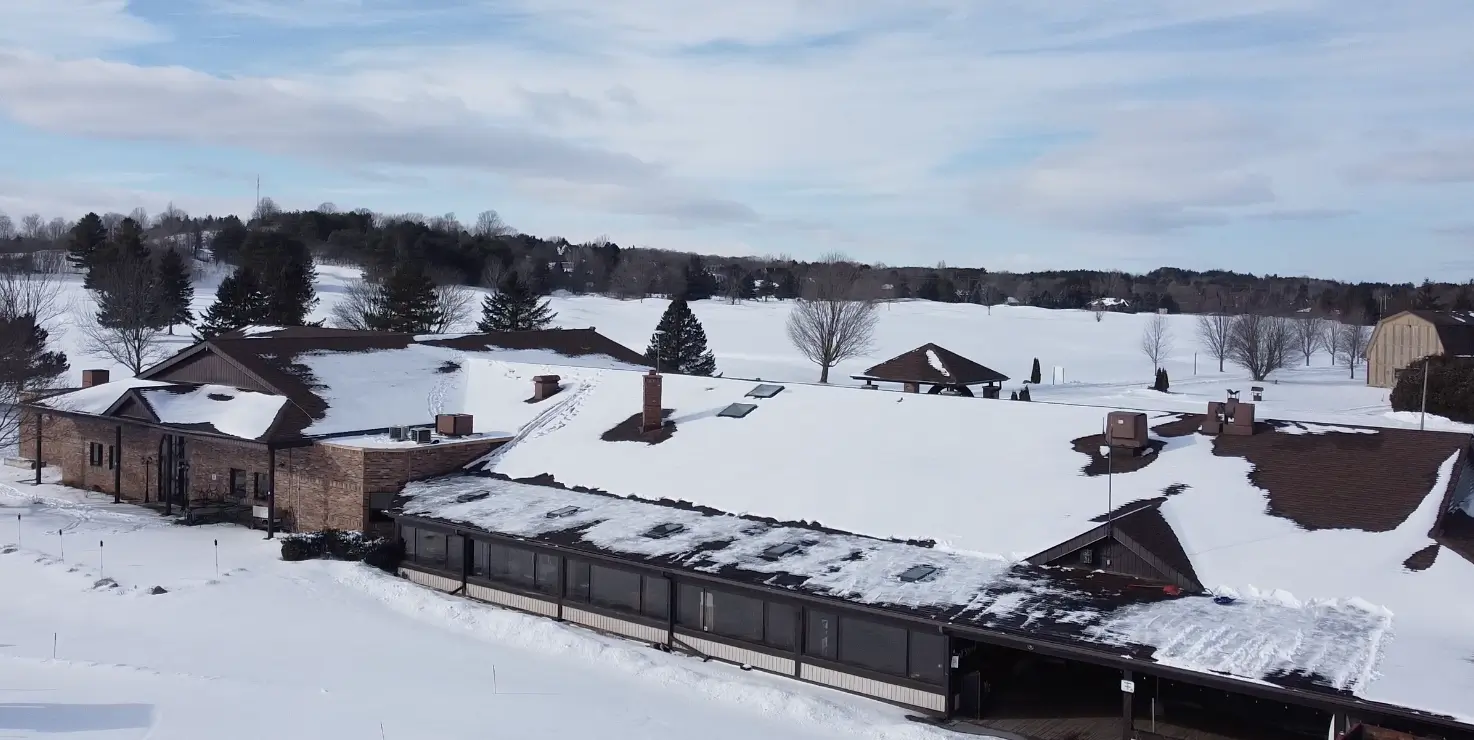Roofs are designed to protect your home from the elements such as heavy rain, strong winds and snow. However our roofs are not necessarily impervious to leaks and other forms of damage that can occur, especially when snow melts.
When snow accumulates on your roof during the winter months, maintaining your roof can be challenging. So what are the effects of snow on your roof? Which are the best techniques and times for preventing leaks? We’ll inform you on how to address leaks from melting snow.
How Does Snow Affect My Roof
Snow should ideally be removed from your roof as soon as possible for a variety of reasons. This is not always feasible so if you’re not up to the task, you can hire a professional roofer to do the job for you.
Additional Weight
Snow that accumulates on your roof won’t melt right away. Due to the shape of snow it will not flow as smoothly as water when on a lower-sloped roof. Snow will shed faster from roofs with a steeper pitch (angle). As another method of controlling snow flow off of your roof, you can install snow guards. Using a snow guard, you can control the melting and flow of snow on your roof. This will prevent damages and leaks caused by fluctuating temperatures and sudden weight changes. In most cases, metal and slate roofs use snow guards since snow can easily slide down smoother-textured roofs. As a result of snow sliding off your roof too quickly, it can cause stress to your nails and mountings, which can lead to leaks. Snow guards are important if you live in an area prone to blizzards and snowstorms.
Ice Dam Formations
If you plan to melt snow on your roof, you need to maintain a constant temperature. When snow melts to a part of your roof that is colder than the rest, it forms an ice dam. As a result, water can enter areas of your roof where it should not be. Ice can ‘backup’ into openings quite a few inches in so beware of any cracks or openings that may be present around details.
Condensation
You can get condensation on the inside of your roof due to fluctuations in temperature. A support structure such as your wooden trusses are prone to rotting and mold growth when moisture and condensation are present. By installing an effective and secure insulation system, condensation can be prevented.
Preventing Roof Leaks
We should take measures in mitigating leaks caused by melted snow now that we know how snow can damage our roof. Being proactive and assessing the condition of your roof during the summer/fall period can potentially save you winter leak problems. During the winter season it is harder and more hazardous to conduct work on the roof. Although various repair options are still available to suite your roofing type will take a few weeks for any sealants to activate properly when you seal leaks during cold weather. For all these reasons having your roof inspected before winter sets in is highly recommended.




